How do you make a room full of coaches snap to attention like a Victoria's Secret model just walked through the room? One way would be to actually walk said model through the room. The other way would be to show them this.
That was the offensive résumé of Kansas Wesleyan University, an NAIA school of 791 students located on the windy plains of central Kansas. KWU head coach Matt Drinkall led a Coordinator's Philosophy breakout session at the AFCA convention. If you follow me on Twitter, you have may have seen this dispatch from the talk.
But if I were to summarize Drinkall's philosophy into a single Dwight Schrute line, it'd be this one.
https://twitter.com/schrutesays/status/714201516601520129?lang=en
"I never want someone to leave a conversation saying, 'Someone does it simpler than those guys,'" Drinkall said.
Kansas Wesleyan ran a power spread offense that repeated the same concepts over and over, but disguised its simplicity by utilizing a number of formations and tempos.
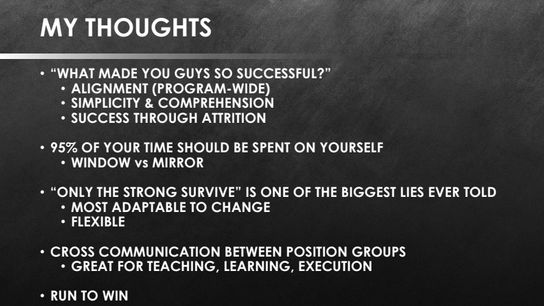
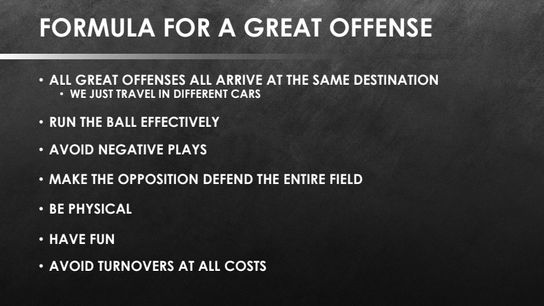
Drinkall said he wants his program identity to be so set that even opposing defensive coordinators know what he's going to do. He doesn't try to out-smart the defensive play-caller because, Drinkall said, they're not the ones he's playing against -- the opposing players are. "Every defensive coach probably has three players they complain about: one linebacker, one defensive back and one lineman," Drinkall said. "Most of the time it's not the coordinator you've got to trick, it's the kid."
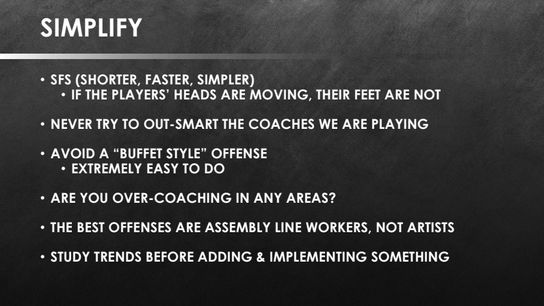
A simple approach to offense doesn't just benefit his team on game days, it cascades through the rest of his program. His coaches' work days don't officially begin until 10 a.m. and end before 7 p.m. His players have Sundays and Mondays off throughout the fall and don't step on the practice field until Wednesdays. Friday practices are full speed in shells. When they are on the practice field, his position groups almost never drill alone.
During game prep, his coaches never talk about fronts other than even or odd, and they never examine coverages beyond noting man or zone.
Drinkall also said a balanced offense doesn't run the ball 50 percent of the time and pass it the other 50, but instead one that makes the defense fear the run and the pass equally.
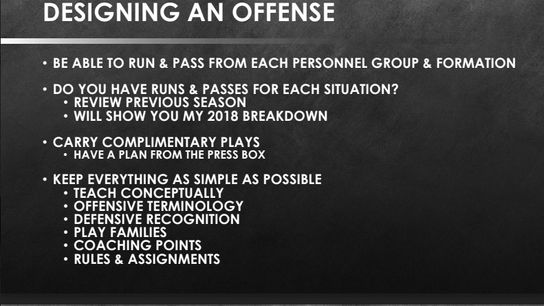
Another key to Drinkall's success is his awareness of his own limitations. He mentioned on a number of occasions throughout the presentation that he admires the schemes of Gus Malzahn, Scott Frost and Lincoln Riley, so much so that he spent the first part of last year attempting to implement Riley's RPO game. After the spring, Drinkall reviewed the film and realized he didn't know the scheme well enough to teach it, so he threw it out.
Still, he uses Malzahn, Frost and Riley as sort of his research and development department. If he thinks of a play to add to his offense, he studies those three and finds that if one of those three don't run the same play, he throws it out. "They're NASA," Drinkall said. "I'm a kid with a rocket."
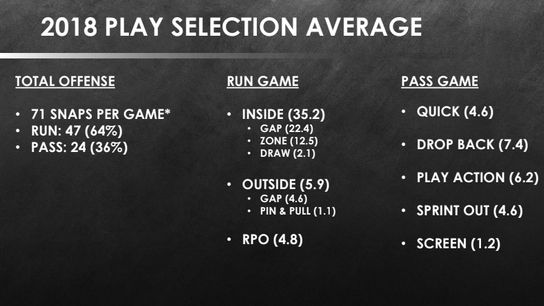
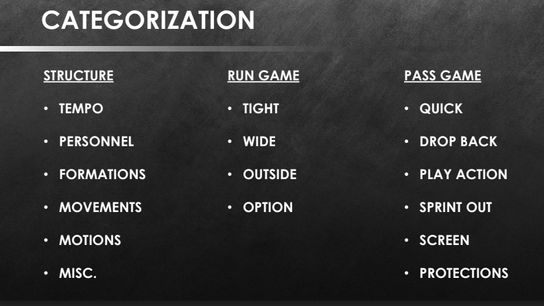
I came away from Drinkall's talk thinking I had just listened to one of the best-kept secrets in college football coaching, but I was incorrect in that thought. In the time between Drinkall spoke at the AFCA convention and the time this article was published, the secret got out. Army has since hired Drinkall as an offensive analyst.
We'll soon find out what Jeff Monken thinks of the wisdom of Dwight Schrute.
